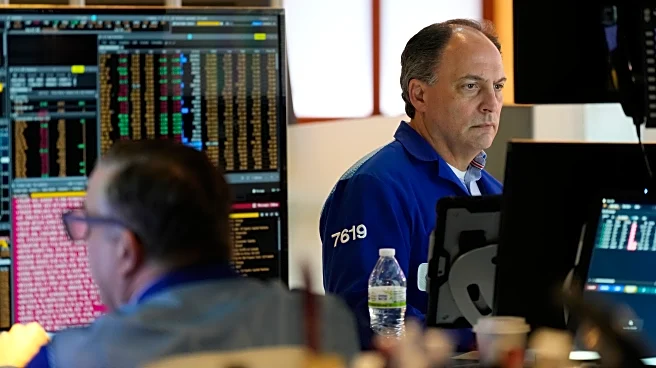Rapid Read • 8 min read
Rosie O'Donnell has publicly criticized Jay Leno following the release of a Netflix documentary titled 'Fit for TV: The Reality of the Biggest Loser.' The documentary, which aired on August 20, 2025, exposes the harsh treatment contestants faced on the reality show 'The Biggest Loser.' One of the controversial moments highlighted includes Leno reading death threats aimed at former contestant Tracey Yukich. O'Donnell took to Instagram to express her disapproval, labeling Leno a 'mean asshole' and also criticized Bob Harper, a former trainer on the show, for not apologizing for the show's past actions. The documentary has sparked outrage and discussions about the ethics of reality television, with viewers expressing concern over the psychological impacts on contestants.
AD
The controversy surrounding 'The Biggest Loser' documentary underscores the growing scrutiny of reality television's impact on participants' mental health. The backlash against Jay Leno and Bob Harper highlights a demand for accountability and ethical standards in entertainment programming. As audiences become more aware of the potential harm caused by such shows, there is increasing pressure on networks to ensure the well-being of participants. This situation reflects a broader shift in audience expectations, with viewers demanding transparency and compassion in media. The documentary has ignited global discussions on mental health in reality TV, pushing for more ethical practices in the industry.
The documentary's revelations may lead to increased calls for reform in reality television production practices. Networks might face pressure to implement stricter guidelines to protect contestants' mental health and ensure ethical treatment. The entertainment industry could see a shift towards more supportive environments for participants, with creators prioritizing their well-being. Additionally, the backlash could prompt further investigations into past reality shows, potentially leading to apologies or reparations for affected individuals.
The ethical implications of reality television are becoming more pronounced, with this documentary serving as a catalyst for change. The industry may need to address the long-term psychological effects on participants and consider the cultural impact of such programming. As discussions continue, there could be a push for regulatory measures to ensure ethical standards are upheld, fostering a more responsible entertainment landscape.
AD
More Stories You Might Enjoy











